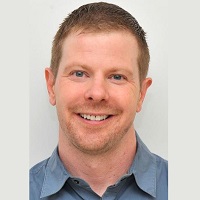
BIOGRAPHY
Chris Andersen is a general medical physician at Wellington Hospital with a wide range of interests including how best to manage the journey of the frail elderly through the inpatient hospital setting. Originally from the United States Dr Andersen received his medical degree from the Columbia College of Physicians and Surgeons in New York City before completing his training in Internal Medicine at the University of Washington affiliated hospitals in Seattle, Washington. He then worked for 7 years as a hospitalist at Overlake Hospital in Bellevue, Washington before moving to New Zealand in 2014. ABSTRACT ACS and the Elderly: What do we do, what should we do? Coronary vascular disease remains the largest cause of morbidity and mortality in patient’s aged 65 and over, and with the population of elderly patients growing the number of those who are admitted and treated with acute coronary syndrome (ACS) is expected to at least double over the next 20 years. As general medical physicians we will likely be on the front lines of needing to care for and treat some, if not most of the elderly patients who present with or develop ACS in the hospital. In many respects this is uniquely challenging as treatment based guidelines for ACS often don’t adequately inform appropriate care in those patients the general medical physician is most likely to see, namely those that are frail, comorbid, or otherwise deemed not appropriate for angiography. Questions that need to be asked, and for which there are few good answers, include which patients should be referred to cardiology for consideration of an early invasive strategy? Should we putting all our patients on dual anti-platelet drugs? Should we be giving them up to 48h of anticoagulation? Which patients should get urgent left ventricular functional assessments, which should be seen by a cardiologist in hospital? Do we give beta-blockers? Statins? The goal of this talk will be to explore the above, and hopefully discuss differing approaches being taken at Wellington Hospital and elsewhere in New Zealand and Australia. |
